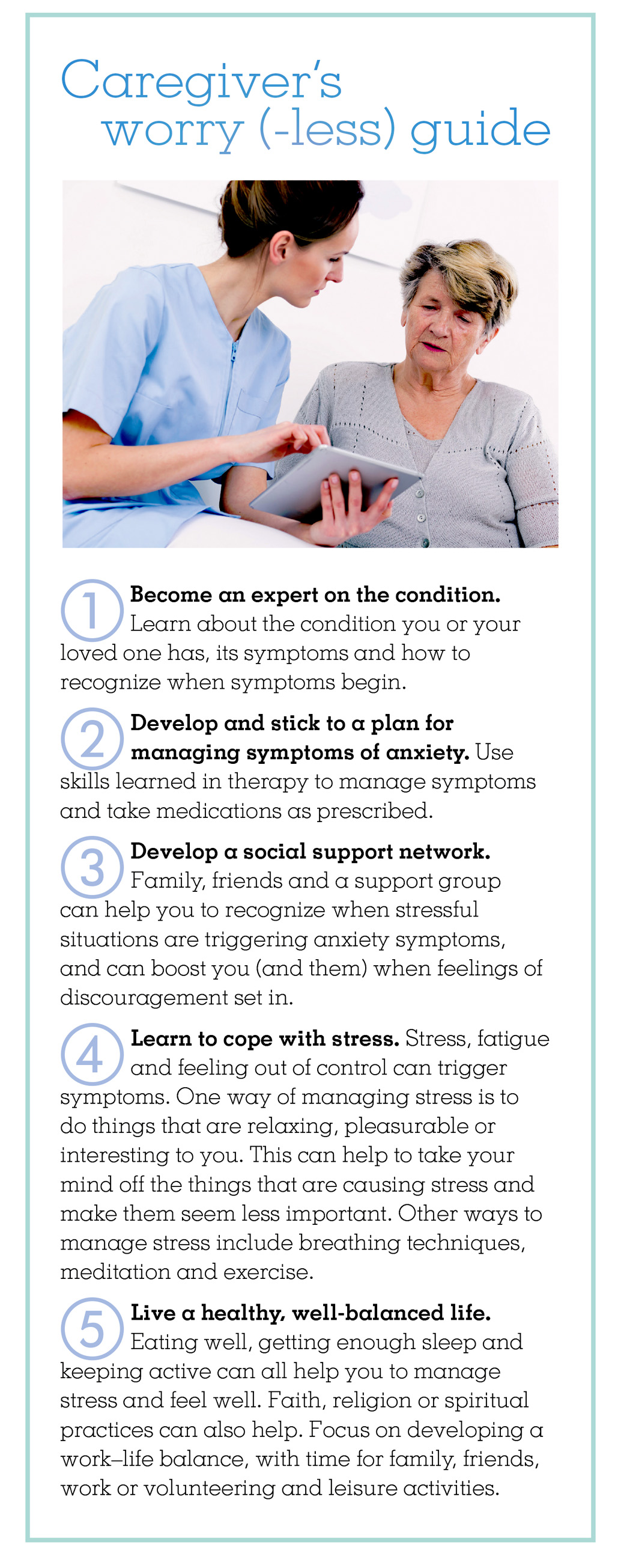Feelings of anxiety can be normal and healthy, or they can indicate an anxiety problem. It’s normal, for example, to feel afraid when a large dog snaps at you or to worry when a family member is several hours late and has not called. These feelings can help you to protect yourself and others you care about. Once the situation is resolved or changes, the fear or worry should go away. However, you may have an anxiety problem if your feelings of worry or fear occur most of the time, keep you awa ke at night or prevent you from doing things in the day. This may be caused by stressful or traumatic events; alcohol, medications or caffeine; a family history of anxiety disorders; or other medical and/or psychiatric problems. Anxiety in older adults is common—it often goes unrecognized and can take different forms. The following are some of the more common forms, listed in order of how often they are seen in older people:
ke at night or prevent you from doing things in the day. This may be caused by stressful or traumatic events; alcohol, medications or caffeine; a family history of anxiety disorders; or other medical and/or psychiatric problems. Anxiety in older adults is common—it often goes unrecognized and can take different forms. The following are some of the more common forms, listed in order of how often they are seen in older people:
Generalized anxiety disorder: Where people worry often over a long period of time.
Phobias: Where people fear a specific thing, such as going outside, heights or spiders.
Posttraumatic stress disorder: Where intrusive memories, dreams or flashbacks cause people to relive the intense fear experienced during a traumatic experience, such as a war, violent assault or accident.
Panic disorder: Where people have episodes of extreme fear, often with physical symptoms such as shortness of breath and chest pains.
Obsessive–compulsive disorder: Where troubling uninvited thoughts, urges and images surface in the mind repeatedly and lead people to perform time-consuming rituals aimed at calming their distress.
What are the signs?
The worry and fear that come with anxiety can cause people to avoid situations, things or people, even when they know that what they are feeling doesn’t make sense. It can also cause them to feel physically ill. Signs include:
• irrational and excessive worry or fear
• checking and rechecking for safety
• avoiding routine activities
• avoiding social situations
• racing heart
• shallow breathing, trembling, nausea and sweating
What can a person do?
People with anxiety are often aware that their fear is excessive, but are unable to control it. It can make it hard, if not impossible, to enjoy life. The first step is to rule out a physical problem by visiting a family doctor. If anxiety is diagnosed, then it can often be managed with a combination of counselling, medication and relaxation techniques.
Adapted from “Improving our response to older adults with substance use, mental health and gambling problems” by the Centre for Addiction and Mental Health. Visit camh.ca for more information.













